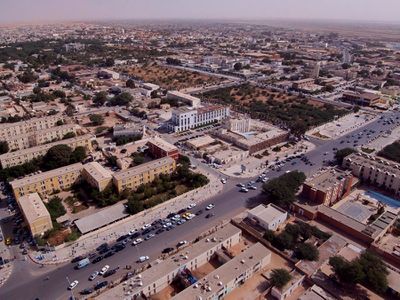Gynopedia needs your support! Please consider contributing content, translating a page, or making a donation today. With your support, we can sustain and expand the website. Gynopedia has no corporate sponsors or advertisers. Your support is crucial and deeply appreciated.
Nouakchott
OVERVIEW
Contraception (Birth Control)
General Note: There are many types of contraceptives, also known as "birth control," including IUDs, oral contraceptives, patches, shots, and condoms, etc. If you would like to view a full list, click here.
Laws & Social Stigmas
What to Get & Where to Get It
Costs
Emergency Contraception (Morning After Pill)
Important Notes: Emergency contraception may prevent pregnancy for three days (72 hours) and sometimes five days (120 hours) after unprotected sex. Take EC as soon as possible after unprotected sex. If you don't have access to dedicated EC, oral contraceptives can be used as replacement EC, but remember the following: 1) Only some contraceptives work as EC 2) Different contraceptives require different dosages and time schedules to work as EC 3) You must only use the first 21 pills in 28-day packs and 4) They may be less effective than dedicated EC. For general information on emergency contraceptives, click here and here.
Laws & Social Stigmas
In Mauritania, emergency contraceptive pills (morning after pills) are available over-the-counter at pharmacies. No prescription is required.[1]
What to Get & Where to Get It
- You can find emergency contraceptive pills (morning after pills) at pharmacies, and they are sold over-the-counter. Some brands you may find are NorLevo 1.5mg.[2]
Costs
Sexually Transmitted Infections (STIs/STDs)
Important Notes - Learn about PEP and PrEP: If you think that you've been recently exposed to HIV (i.e. within 72 hours), seek out PEP (Post-Exposure Prophylaxis). It's a month-long treatment to prevent HIV infection after exposure, and it may be available in your city. Take PEP as soon as possible. For more information, click here. If you are at risk of HIV exposure, seek out PrEP (Pre-Exposure Prophylaxis). It's a daily oral pill that can prevent HIV infection before exposure. To learn more about PrEP, click here.
Laws & Social Stigmas
In Mauritania, there are no known travel or residency restrictions for people with HIV/AIDS. This means that you can enter the country, regardless of your HIV status, and you should not be deported if you test positive for HIV while you are in the country.[3]
What to Get & Where to Get It
Testing Facilities
Support
Costs
Medications & Vaccines
Laws & Social Stigmas
What to Get & Where to Get It
Costs
Menstruation
Note: In addition to pads and tampons, you can also use menstrual cups and menstrual underwear for your period. To learn more about menstrual cups, click here. To learn more about menstrual underwear, click here.
Laws & Social Stigmas
What to Get & Where to Get It
Costs
Gynecological Exams
Laws & Social Stigmas
What to Get & Where to Get It
Costs
Pregnancy
Laws & Social Stigmas
The maternal mortality rate (MMR) is 602 deaths per 100,000 live births, according to 2015 data. This MMR is ranked 14th in the world, meaning that Mauritania has a significant MMR problem. [4]
What to Get & Where to Get It
Costs
Abortion
Important Note: There are two main types of abortions: medical (also known as the "abortion pill") and surgical (also known as "in-clinic"). For medical abortions, you take a pill to induce abortion. For surgical abortions, a procedure is performed to induce abortion. For general information about medical and surgical abortions, click here.
Laws & Social Stigmas
In Mauritania, abortion is generally illegal. However, it appears that it is informally permitted in certain cases, which include when: the pregnancy endangers the life of the pregnant person, or when the pregnancy is the result of rape or incest. To be clear, there is no formal legislation that supports these exceptions, but some organizations (such as Women on Waves) report that such informal conditions may be accepted.[5]
What to Get & Where to Get It
Costs
Advocacy & Counseling
Laws & Social Stigmas
What to Get & Where to Get It
Costs
List of Additional Resources
- Ministry of Health
- Mauritania - WHO
- Mauritania - UNFPA
- The Association Mauritanienne pour la Promotion de la Famille (AMPF): "Since it was founded in 1990, the Association Mauritanienne pour la Promotion de la Famille (AMPF) has focused primarily on sensitizing both the general population and the country’s political and religious leaders to the personal and economic benefits of family planning, and on promoting provision of proper sexual and reproductive health (SRH) services." This organization is a member of the International Planned Parenthood Federation.
- Equaldex - Mauritania: Click here to learn about LGBTQ rights and laws in Mauritania. It is important to understand that homosexuality is illegal in Mauritania.
